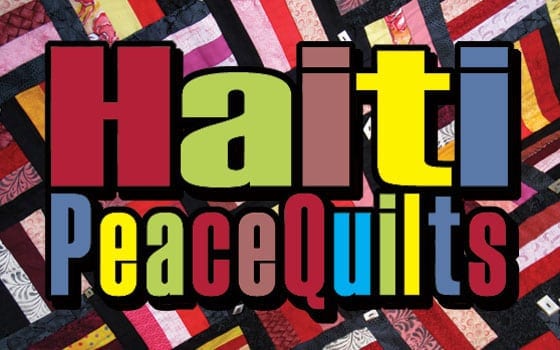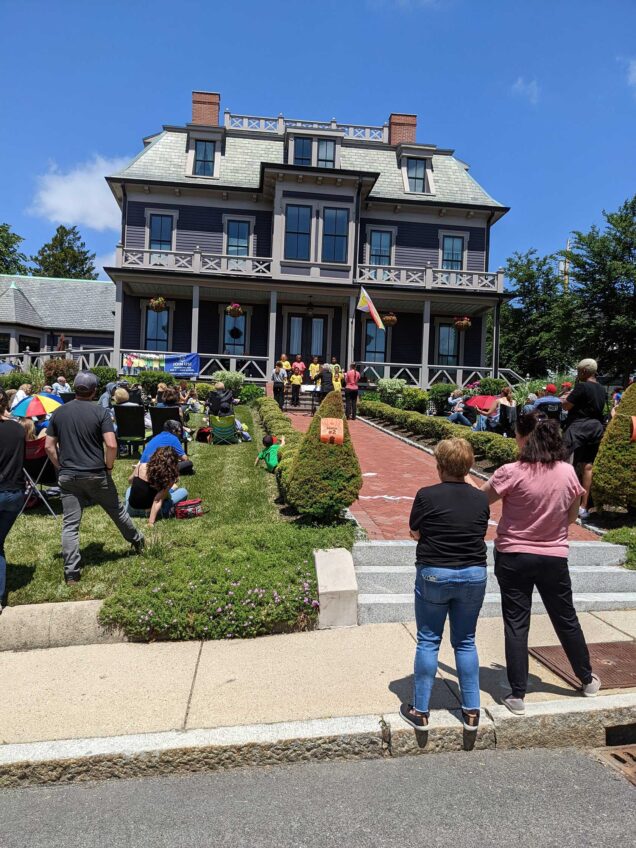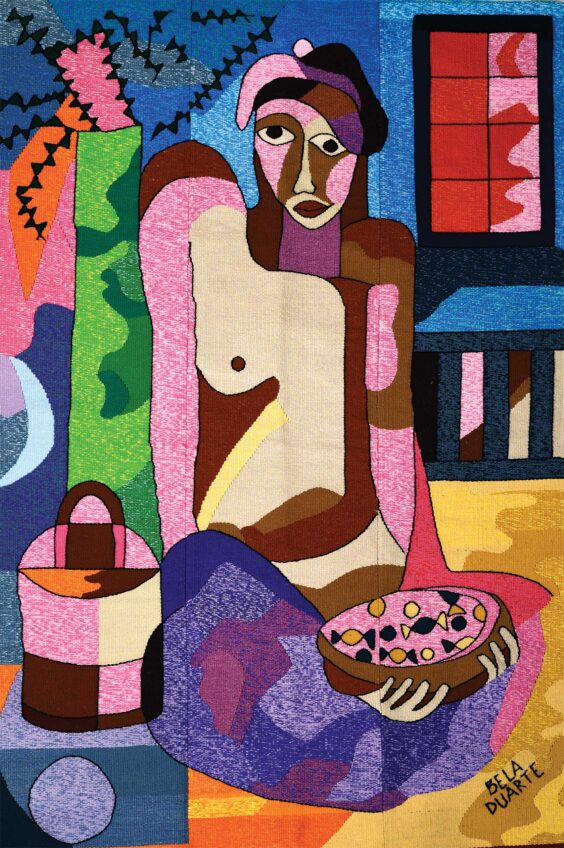‘Collective Energy, Single Visions’ exhibit on display at Haley House









‘Collective Energy, Single Visions’ exhibit on display at Haley House
|
(Photos courtesy of PeaceQuilts) |
The “Collective Energy, Single Visions” exhibit of original work from Haiti PeaceQuilts art collectives will be on display at Haley House Bakery Café from Dec. 5 through Jan. 28.
A colorful and sometimes candid look into the lives of the artisans making them, the exhibit will kick-off with a reception Friday, Dec. 9, from 5:30-7:30 p.m. Nadege Florian, leader of a co-operative from Cité Soleil, Port-au-Prince, Haiti will be in attendance.
Founded in 2006 by Cape Cod resident and artist Jeanne Staples, Haiti PeaceQuilts seeks to eliminate poverty by establishing and supporting independent women’s quilting cooperatives.
“The first time I went to Haiti, I had this idea to look for a marketable way to use the very formidable sewing skills of the women passed on from mother to daughter,” Staples said.
After that fateful trip, she spent time visiting and brainstorming with the women about what would make sense.
Once Staples and the women committed to quilts being the focus of the cooperatives, she took a crash course in quilting. She was able to teach the group, which consisted of seven women basic techniques to get them started.
By chance in 2007, she met quilter Maureen Matthews-McClintock at a fundraiser on Martha’s Vineyard. Staples explained what she was trying to accomplish with Haiti PeaceQuilts and Matthews-McClintock took out her appointment book in the middle of the party to set up a time to talk further.
That’s when the organization really took off.
To get each cooperative up and running smoothly, the participants are given a small stipend. The up front cash goes toward materials, equipment and living expenses. Fabric for the most part is donated and shipped to Haiti from the U.S.
Work space for each cooperative varies. Some spaces are donated, some are paid for and others are borrowed.
“We give the women a pre-commission based on what we think we can sell the quilt for,” Staples explained. “This is a great point for feedback. This allows us to talk about what works best in the marketplace. Right now, we’re aiming for galleries and museums. It was important for them to know that these independent cooperatives are their own businesses. We set them up and later move to a coaching position.”
Staples’ model is working. The quilts are becoming more personal, down to the dates and times of meaningful events. Also, the women are becoming more dedicated.
“During the aftermath of the earthquake we saw the dividends from the groups,” Staples said. “Many of them wanted to get back to work right away. A lot of the workspaces were destroyed so many of them would meet outside. The cooperative served as a support group. They bonded.”
In addition to the art quilts, Haiti PeaceQuilts has launched a more affordable line called PQ2 aimed at consumers. So far they’ve got pillow covers, zippered bags and totes. Some products are being offered online at Macy’s as part of their Heart of Haiti holiday offerings. They’re constantly looking for ways to diversify that make sense economically.
“Haiti PeaceQuilts has started to venture into block printing on muslin,” said Celia Grant, curator for the Collective Energy, Single Visions exhibit and Haley House board member.
Metal artist Serge Jolimeu has been collaborating with the co-ops on the design of the block prints based on his metal work designs.
Today, Haiti PeaceQuilts has seven separate independent cooperatives. The joy and skills learned by the quilters are being passed on to friends, family and neighbors increasing the potential for the development of new co-ops.
“Last time I was there, one of the women informed us almost sheepishly that she’d been teaching a group of women how to sew and asked if she could start a cooperative,” Staples said. “We were like: ‘Yes!’ It’s exciting to see the arc of development. Not that one should be surprised because Haiti is rich in the arts, but it’s gratifying. The women are feeling empowered to take initiative.”
For more information on the reception, call Haley House Bakery Café at 617-445-0900.






